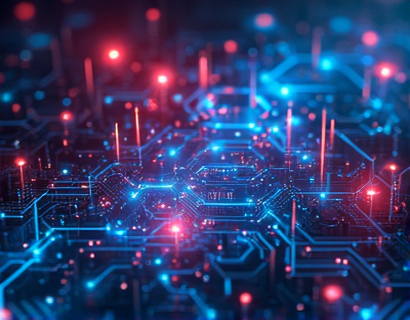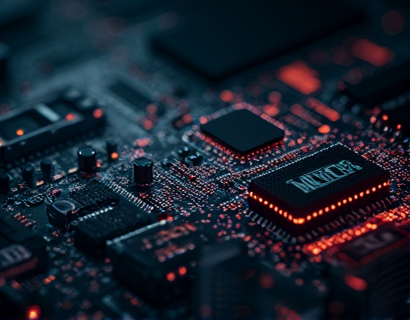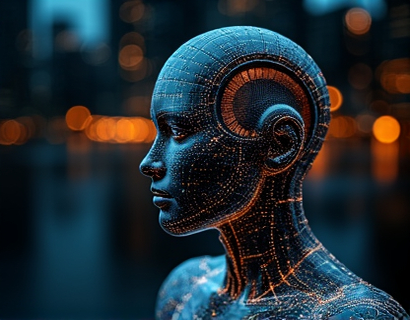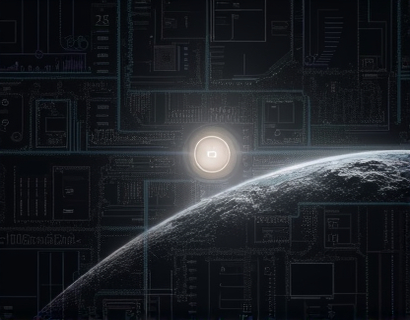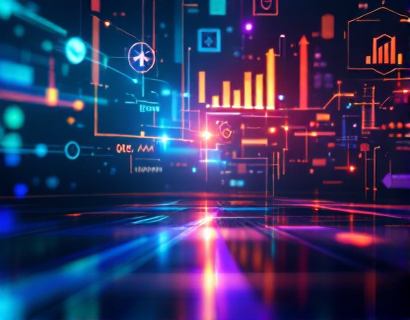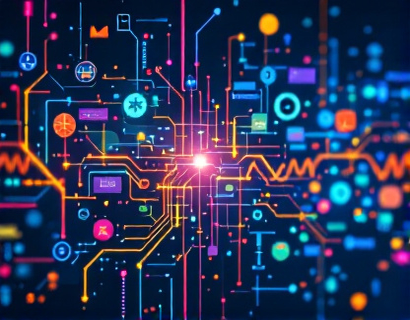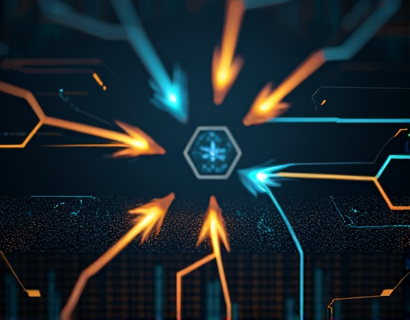Decentralized Productivity: Harnessing AI and Crypto for Next-Gen Digital Solutions
The intersection of cryptocurrency and artificial intelligence (AI) is giving rise to a new era of decentralized productivity tools and digital solutions. This synergy is not only revolutionizing how we approach digital workflows but also redefining user experiences through innovative applications. As we delve into this topic, it's essential to understand the foundational technologies driving this transformation and their potential to reshape the digital landscape.
Cryptocurrency, since its inception with Bitcoin, has been more than just a digital currency. It has introduced a decentralized paradigm that extends beyond finance, impacting various sectors including technology, governance, and productivity. The underlying blockchain technology ensures transparency, security, and immutability, making it an ideal foundation for building trustless and decentralized systems.
AI, on the other hand, has been rapidly advancing, enabling machines to perform tasks that traditionally required human intelligence. From natural language processing to machine learning and computer vision, AI is becoming increasingly integrated into our daily lives. When combined with the decentralized nature of blockchain, AI can operate in a trustless environment, enhancing its capabilities and expanding its applications.
The convergence of these technologies is giving birth to decentralized productivity tools that leverage AI to optimize workflows, automate tasks, and enhance user experiences. These tools are designed to be accessible, secure, and efficient, offering a glimpse into the future of digital work environments. Let's explore some of the key areas where this synergy is making a significant impact.
Decentralized Workspaces
Decentralized workspaces are redefining the way teams collaborate and manage projects. Traditional workspaces often rely on centralized servers and platforms, which can be vulnerable to single points of failure and data breaches. Decentralized workspaces, powered by blockchain, eliminate these risks by distributing data across a network of nodes.
One of the primary benefits of decentralized workspaces is enhanced security. Since data is not stored in a single location, the risk of a centralized attack is significantly reduced. Additionally, blockchain's cryptographic techniques ensure that data remains tamper-proof and verifiable. This level of security is crucial for businesses handling sensitive information.
AI plays a vital role in these workspaces by automating routine tasks and providing intelligent insights. For instance, AI-driven tools can analyze project data to identify bottlenecks, suggest optimizations, and even predict future trends. This not only streamlines workflows but also empowers teams to make data-driven decisions.
Platforms like decentralized file storage solutions, such as IPFS (InterPlanetary File System), combined with AI-powered search and organization tools, create a seamless and secure environment for collaborative work. Users can store and share files without relying on central servers, ensuring high availability and fast access.
Smart Contracts for Automated Workflows
Smart contracts are self-executing contracts with the terms of the agreement directly written into code. They run on blockchain networks and automatically enforce and execute contractual obligations when predefined conditions are met. This automation is particularly beneficial for productivity tools that require reliable and transparent processes.
In a decentralized productivity context, smart contracts can manage various aspects of project management, from task assignments to payment settlements. For example, a smart contract can be programmed to release payment to a freelancer once the delivered work meets certain quality criteria, verified by AI-driven assessment tools.
This not only reduces the need for intermediaries but also ensures that all parties adhere to the agreed terms. The transparency of blockchain ensures that all transactions and contract executions are visible and auditable, building trust among collaborators.
AI can further enhance smart contracts by providing predictive analytics and real-time insights. For instance, AI can analyze historical data to forecast project timelines and resource requirements, helping to optimize smart contract conditions for better efficiency and accuracy.
AI-Driven Productivity Tools
AI-driven productivity tools are becoming increasingly sophisticated, offering a range of functionalities that can significantly boost efficiency. These tools leverage machine learning algorithms to understand user behavior, automate repetitive tasks, and provide personalized recommendations.
One prominent application is AI-powered virtual assistants, which can manage calendars, schedule meetings, and even draft emails based on context and user preferences. These assistants can integrate with various decentralized platforms, ensuring seamless operation within a trustless environment.
Another area is natural language processing (NLP), which enables tools to understand and generate human-like text. AI-driven writing assistants can help users craft professional emails, reports, and proposals with minimal effort. These tools can also assist in language translation, making global collaboration more accessible.
AI-based project management tools can analyze task data, identify patterns, and suggest optimal workflows. By learning from past projects, these tools can predict potential issues and propose solutions, reducing the likelihood of delays and errors.
Decentralized Identity and Access Management
Identity verification and access management are critical components of any digital workflow. Traditional systems often rely on centralized authorities to manage identities, which can be prone to breaches and misuse. Decentralized identity solutions, powered by blockchain and AI, offer a more secure and user-controlled approach.
Decentralized identity (DID) systems allow users to own and manage their digital identities without relying on third parties. This not only enhances privacy but also gives users greater control over their personal data. AI can enhance DID systems by providing advanced authentication methods, such as biometric verification, and detecting anomalies in user behavior.
Access management in decentralized workspaces can be automated using AI to ensure that users have the appropriate level of access based on their roles and permissions. Smart contracts can enforce these access rules, ensuring that sensitive information is only accessible to authorized individuals.
Challenges and Considerations
While the potential of decentralized productivity tools powered by AI and cryptocurrency is immense, there are several challenges and considerations to keep in mind. Scalability remains a significant issue for blockchain technologies, as many networks struggle to handle high transaction volumes efficiently.
Interoperability between different blockchain platforms and decentralized applications is another challenge. Ensuring that tools and services can seamlessly integrate and communicate is crucial for a cohesive user experience.
User adoption is also a key factor. Educating users about the benefits and functionalities of decentralized tools is essential for widespread acceptance. Simplicity and ease of use are paramount in driving adoption.
Regulatory considerations cannot be overlooked either. As decentralized technologies evolve, regulatory frameworks are still catching up. Ensuring compliance while maintaining the decentralized nature of these tools is a delicate balance.
Future Prospects
The future of decentralized productivity tools is promising, with ongoing advancements in blockchain, AI, and related technologies. As scalability solutions like sharding and layer 2 protocols are developed, blockchain networks will become more efficient and capable of supporting complex applications.
AI continues to advance, with improvements in machine learning algorithms and increased computational power. This will enable more sophisticated and intuitive productivity tools that can better understand and assist users.
The integration of Web3 technologies, such as decentralized finance (DeFi) and non-fungible tokens (NFTs), is also opening new avenues for productivity tools. For example, DeFi can provide decentralized funding options for projects, while NFTs can be used to represent unique digital assets or credentials within workflows.
As these technologies mature, we can expect to see more innovative applications that further blur the lines between work and personal life, creating more flexible and efficient digital environments. The potential for decentralized productivity tools to transform how we work and collaborate is vast, and the journey has just begun.




